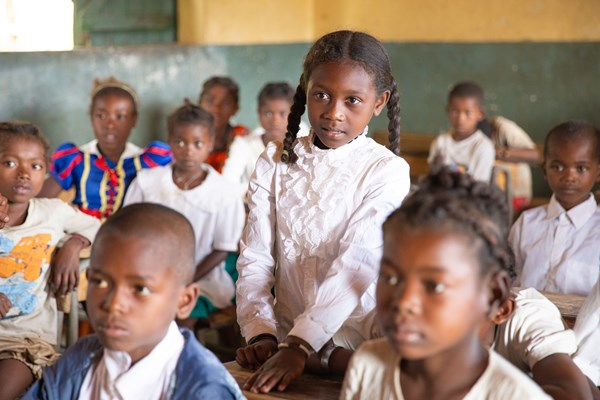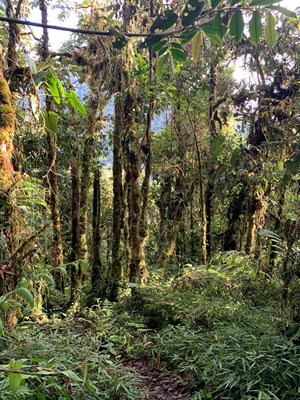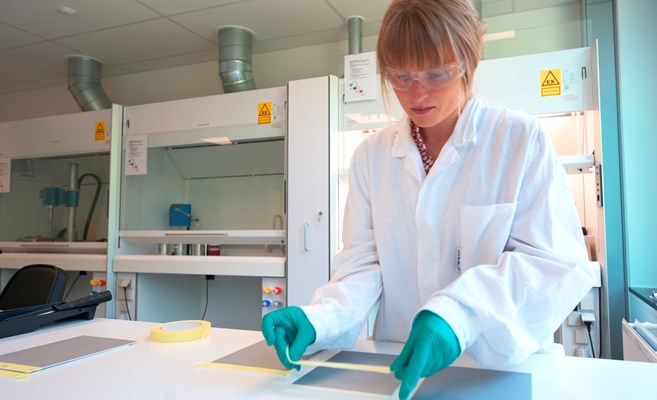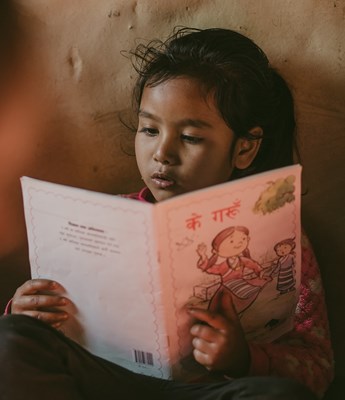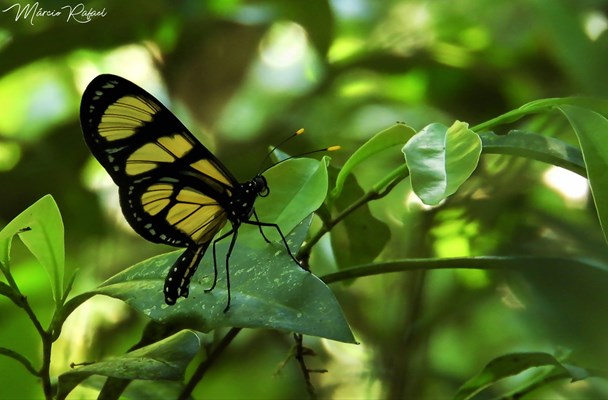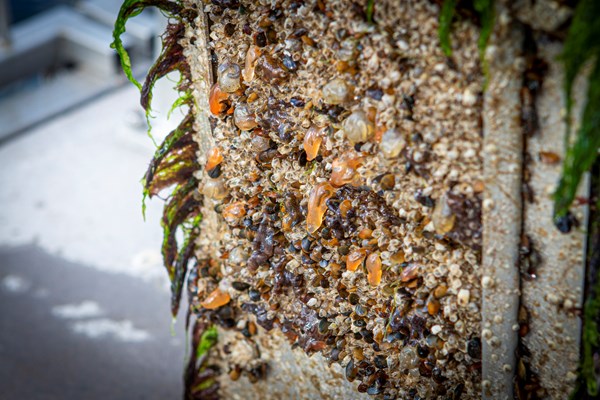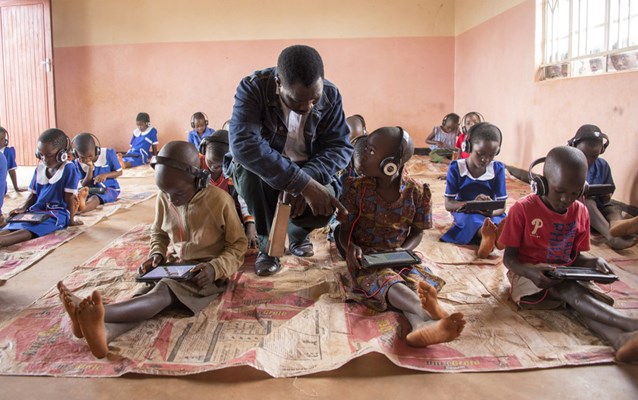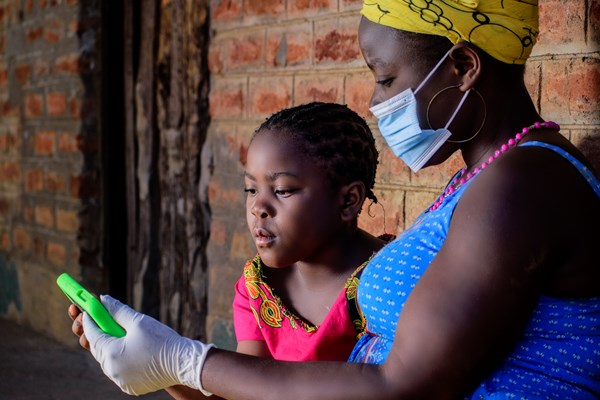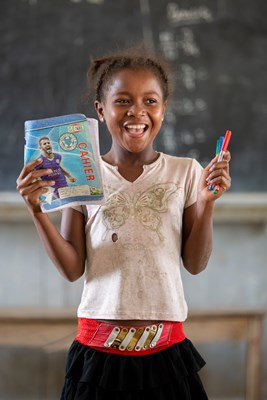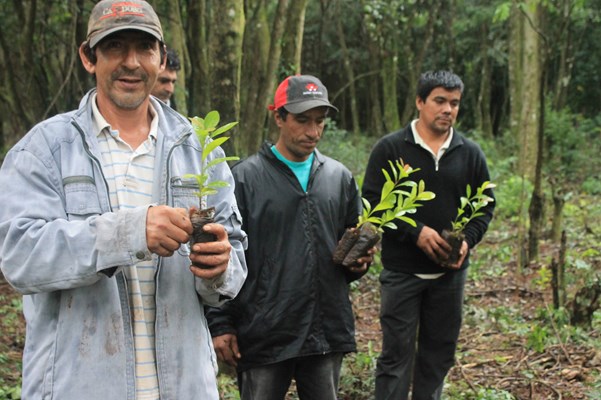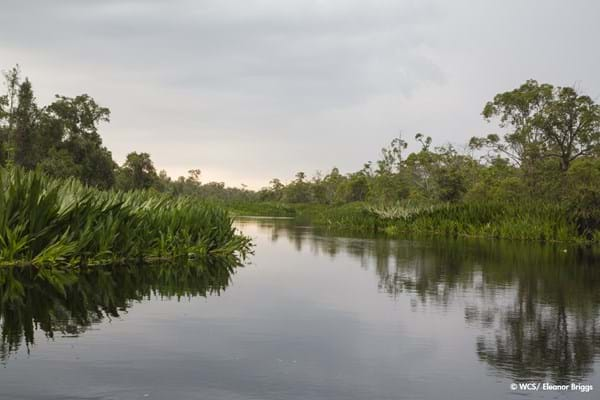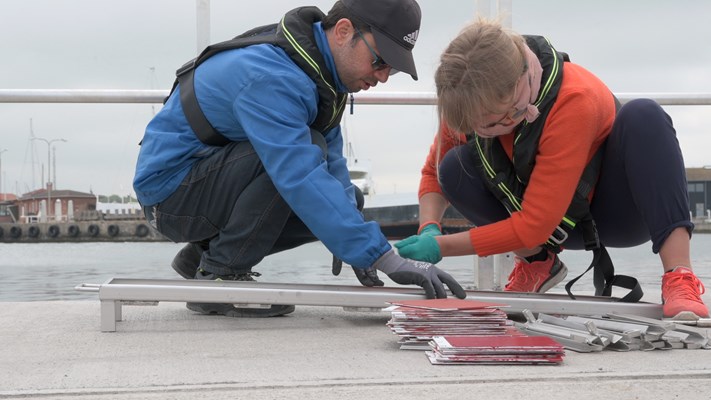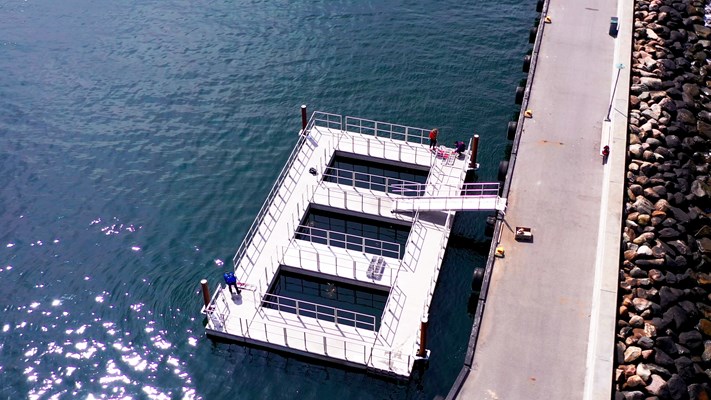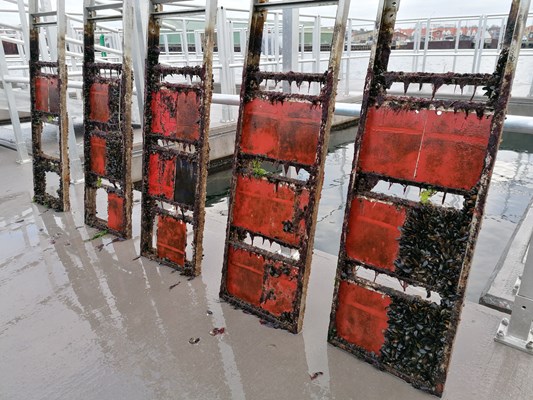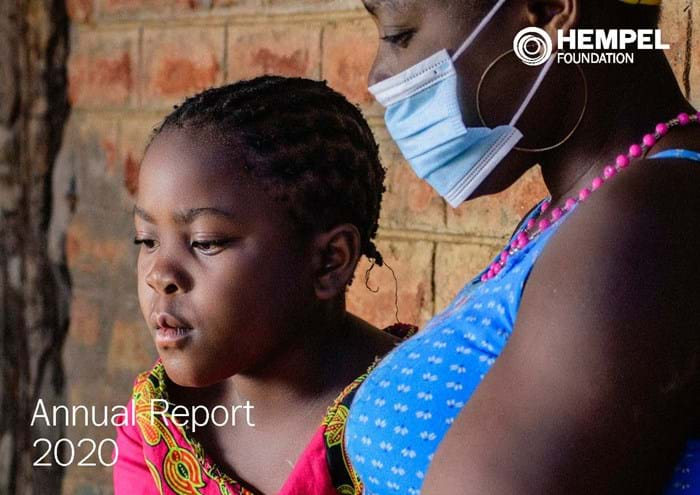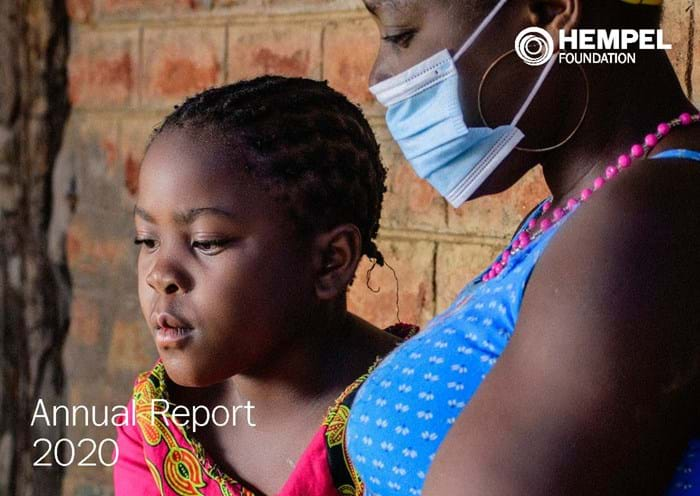
COVID-19 – constraints and opportunities
Early in 2020, the Hempel Foundation was forced to halt most of its scheduled new philanthropic activities and concentrate efforts and donations on supporting existing partners around the globe.
We have witnessed these organisations’ dedication and have supported their tireless work to mitigate the devastating consequences of lockdowns, be it to vulnerable school children living in rural poverty or some of the world’s most valuable natural habitats.
Our COVID-19 response has been characterised by three courses of action:
- Outreach to our partners to offer our full flexibility and support. Activities were postponed and targets extended. Budgets were re-prioritised and project budget reserves were used.
- Further donations to some of our partners most affected by the pandemic. Within education, these additional donations were used to provide extra educational activities, improving school hygiene, creating information campaigns and covering basic expenses for the poorest families so they could continue to send children to school. In Denmark, we also strengthened our focus on 2020 in the light of COVID-19 and increased our donations to helping vulnerable families.
- To ensure the intended outcome of our projects, we made donations to prolong some of our most affected education projects so that those children not in school due to the pandemic will still benefit in the long term.
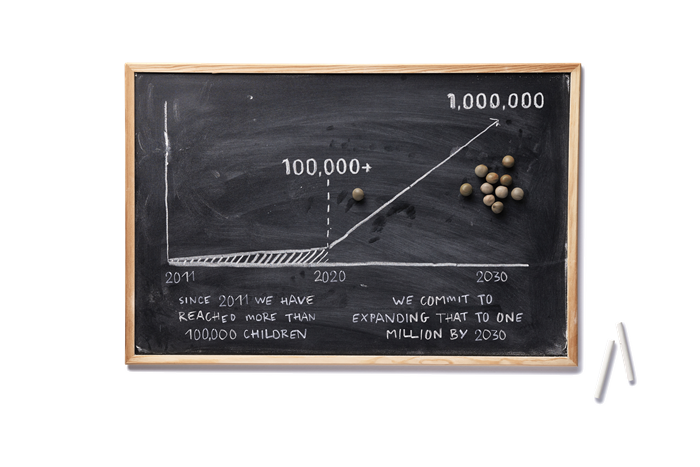
Education
Why?
Education is a key to addressing poverty and thereby also health, gender equality and a controlled population development.
However, 9 out of 10 children in the world's poorest countries cannot read simple texts when they are 10 years old. This is defined as learning poverty.
How?
We have revised our education strategy in the light of COVID-19 and the severe repercussions posed by the pandemic.
We have made a commitment to reach one million children by the end of 2030 with learning interventions that will combat learning poverty.
Three courses of action are empirical to achieve our goal:
- Scalable learning interventions with a proven potential for impact at scale
- Unleashing the potential of EdTech supporting delivery of quality education
- Catalysing collaboration, knowledge-sharing and awareness-raising
What?
In 2020 we started new work in Madagascar and Uganda, and extended projects in Bangladesh, Bolivia and Guatemala. Furthermore, we made commitments to start new work in Sierra Leone and Zambia.
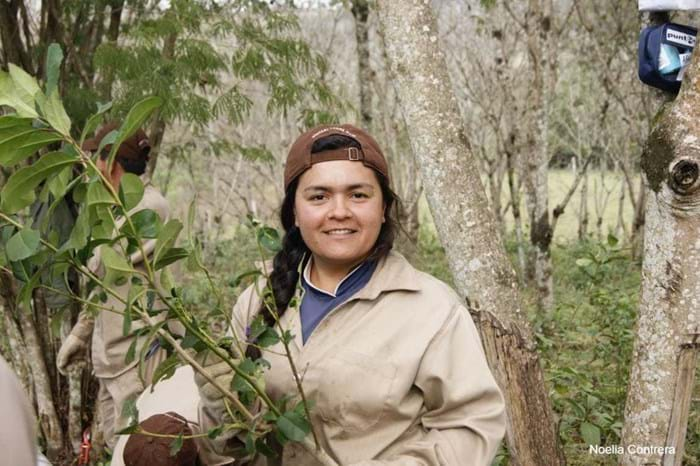
Nature
Why?
“In a nutshell, biodiversity is the variety of life on Earth, in all its forms and all its interactions and without it, there is no future for humanity.” Prof. David Macdonald (Oxford University)
The Living Planet Report published in 2020 estimated that on average the global populations of mammals, birds, fish, amphibians and reptiles plunged by 68 per cent between 1970 and 2016.
How?
The Hempel Foundation’s impact in the area of biodiversity may seem small considering the extent of the problem and the global efforts required, but our contributions help catalyse greater change and add significant value to sustaining key biodiversity areas in specific locations around the world.
What?
In 2020 we started new conservation work in Ecuador and Madagascar. Furthermore, we entered partnerships to support projects in the Democratic Republic of Congo and Indonesia and committed support to a conservation project in Paraguay as well as an innovative fintech project in Uganda with the Green Digital Finance Alliance.
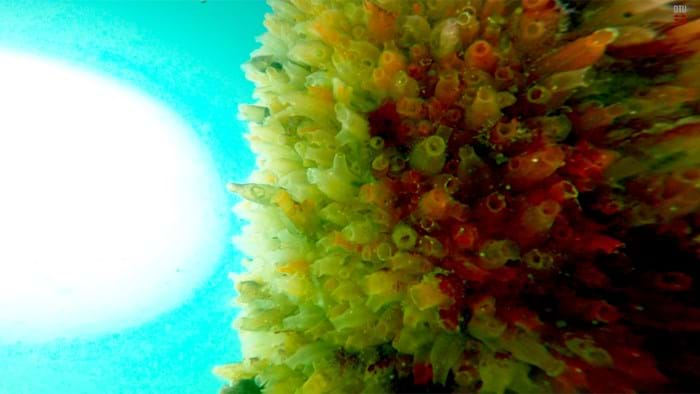
Science
Within science, the Hempel Foundation’s vision is to establish a globally leading education, research and innovation centre to facilitate international cooperation on coatings for a better future.
Why?
Coatings are proving great potential with regards to a more sustainable future.
How?
At the end of 2020, almost four years after its establishment CoaST – the Hempel Foundation Coatings Science and Technology Centre – had built a sound framework for fulfilling its mission. CoaST is a fast growing and highly diverse international environment, attracting students and staff from 14 different countries.
What?
In 2020, CoaST focused on starting a new research area: Sustainable raw materials for coatings. Three new PhD projects on bio-based materials for coating applications were begun, covering the extraction of bio-based materials, chemical modifications of bio-based materials, and formulation of coatings with bio-based components, respectively. Close international cooperation is expected to grow further.
Download Annual Report 2020
Hempel Foundation Annual Report 2020Images from Annual Report 2020
